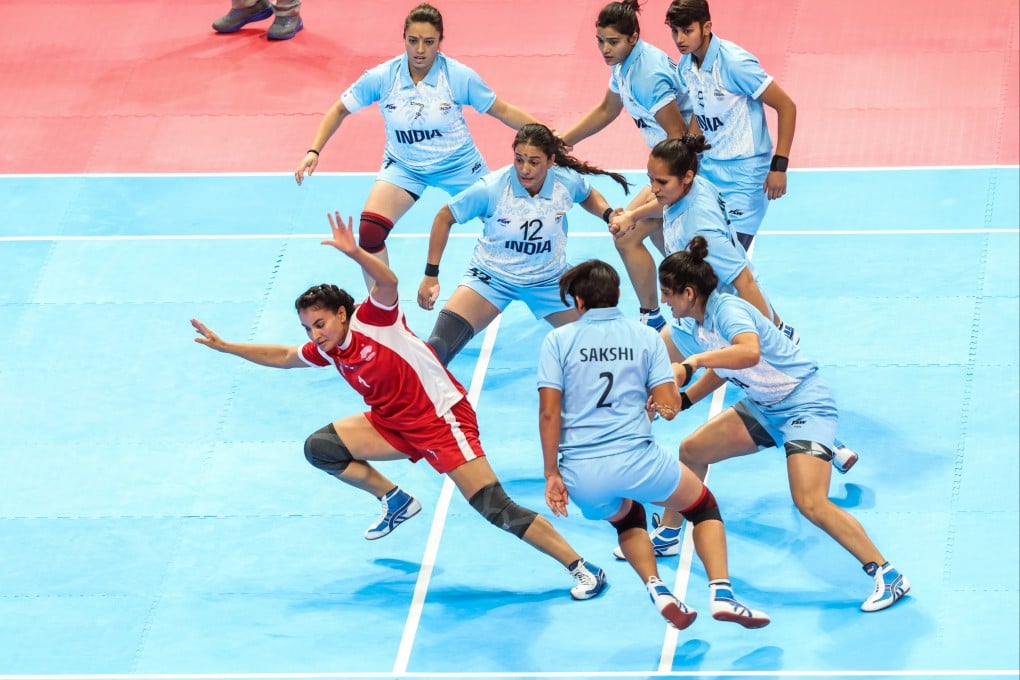Nepal’s kabaddi medal at Asian Games shines spotlight on ‘overlooked’ women athletes
- Family restrictions, poor infrastructure and low wages often discourage many young Nepali women from pursuing sports as a career
- Such limitations further sideline sports like kabaddi, which also lack the mass appeal of football, cricket or volleyball


While more Nepali women are playing professionally today, a lack of encouragement and family restrictions still prevent many young people from pursuing sports as a career. Support from the state is lacking – with inadequate promotion, limited infrastructure and low wages – discouraging many from taking part and leading some of those who do to soon quit.
Sports such as kabaddi, which lack the mass appeal of football, cricket or volleyball, are further pushed to the margins.
Though a popular sport in schools, kabaddi players in Nepal say they hardly get enough professional training – the national team only prepared three months before the Hangzhou Games – and there are not enough national competitions to test and sharpen their skills. Nepal does not even have a dedicated training facility for kabaddi – this year’s women’s team were forced to practise in a table tennis hall before their debut Asian Games match.
